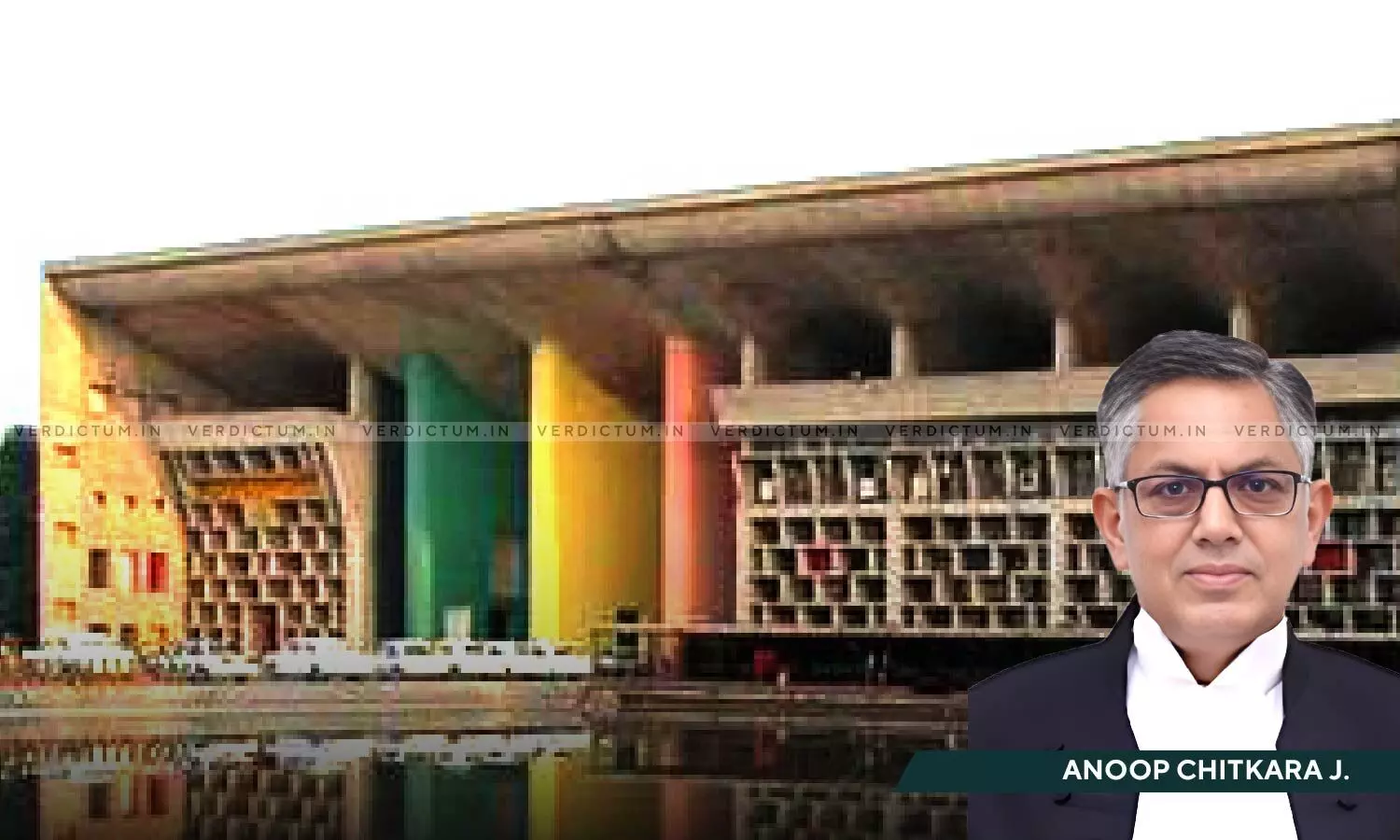
Punjab & Haryana HC Denies Anticipatory Bail To Clerk Involved In PNDT Bribery Scandal
 |
|The Punjab and Haryana High Court has declined anticipatory bail for a clerk implicated in a bribery scandal under the Pre-Conception and Pre-Natal Diagnostic Techniques Act, 1994 (PNDT Act).
The clerk, accused of demanding a bribe from a doctor to settle a notice issued under the PNDT Act, was facing charges of corruption and complicity in perpetuating gender bias.
The Single-Judge Bench of Justice Anoop Chitkara emphasized the critical role of nodal agencies under the PNDT Act in combating female foeticide and ensuring gender equality. The Court underscored the importance of upholding ethical standards in public service, particularly among officials entrusted with sensitive responsibilities.
Highlighting the gravity of the allegations, the Court condemned the betrayal of trust by government employees who prioritize personal gain over their duties to society. He emphasized the societal implications of corruption and gender bias, stressing the need for robust measures to address systemic challenges.
The case centered on Naveen, a clerk serving as a Nodal Officer's assistant in Panipat, Haryana, under the PNDT Act. Naveen faced charges of soliciting a bribe from a doctor, Dr. Pawan Kumar, to resolve a notice issued under the PNDT Act. The prosecution presented evidence, including transcripts of recorded negotiations, implicating Naveen in the bribery scheme.
"The Nodal Agencies under the PNDT are supposed to work with the highest standards of morality, with a strong and unshakeable sense of responsibility, and have to be bold enough to work towards curbing female foeticide, which has led to falling female-gender ratio in the North Indian population. When officials at such responsible, sensitive, and powerful positions, instead of proudly shouldering their responsibilities, pawn off their morals, their honour, and their duties for illegal financial gains, the society needs to get alarmed. Protecting the life of our future generation is not only one of the most fundamental duties of the legal system but also of the world at large and such a pivotal constitutional duty cannot be callously brushed away, as it is our dignity itself which is at stake," the Court said.
Upon reviewing the evidence and considering the gravity of the allegations, the Court concluded that Naveen's involvement in the bribery scandal warranted the denial of anticipatory bail. The Court noted Naveen's extensive communication with Dr. Kumar and the recovery of bribe money, which corroborated the complainant's allegations.
Moreover, the Court underscored the broader societal implications of gender bias, citing alarming statistics on declining female-to-male ratios in India and Haryana. The Bench highlighted the prevalence of son preference and its detrimental impact on gender equality, urging concerted efforts to combat gender bias and promote social justice.
"Today the globe is witnessing the revolution of not only Information Technology but also of artificial intelligence, which has been a great gender leveller for all humans. Thus, those who, for their small monetary gains misuse such sensitive positions, not only betray the trust the system has reposed in them, being on such responsible and powerful positions, but also fail the society, making their conduct highly unethical, immoral and reducing them to the status of lowest kinds of human beings," the Court said.
The Court reiterated the importance of upholding ethical standards and public trust in governance. It also emphasized the need for stringent measures to prevent corruption and protect vulnerable populations from exploitation.
The Court said, "Some corrupt government employees put those doctors running diagnostic centers under the PNDT Act under the threat of being wrongly prosecuted under the stringent provisions of the act and under such garb extort money. Reports suggest that a large number of unethical gangs also approach some of these diagnostics centers, and under one pretext or other, they make payment of money for illegal sex determination and they also make video recordings of such conversations and subsequent tests."
"Based on such evidence, they blackmail these unethical people and doctors and further extract and extort massive money. Instead of checking and putting an end to such practices and such unethical practitioners and such gangs, who are extorting money from those doctors who agree to disclose gender and pregnancy status under pressure or because of the greed of money, certain corrupt employees at such highly sensitive and noble posts, very lightly, shrug off their principal duties," it added.
Cause Title: Naveen v. State of Haryana [Neutral Citation No. 2024:PHHC:076189]
Appearance:-
Petitioner: Advocate A.D.S.Sukhija
Respondent: Vikrant Pamboo (Sr. DAG)
Click here to read/download the Judgment